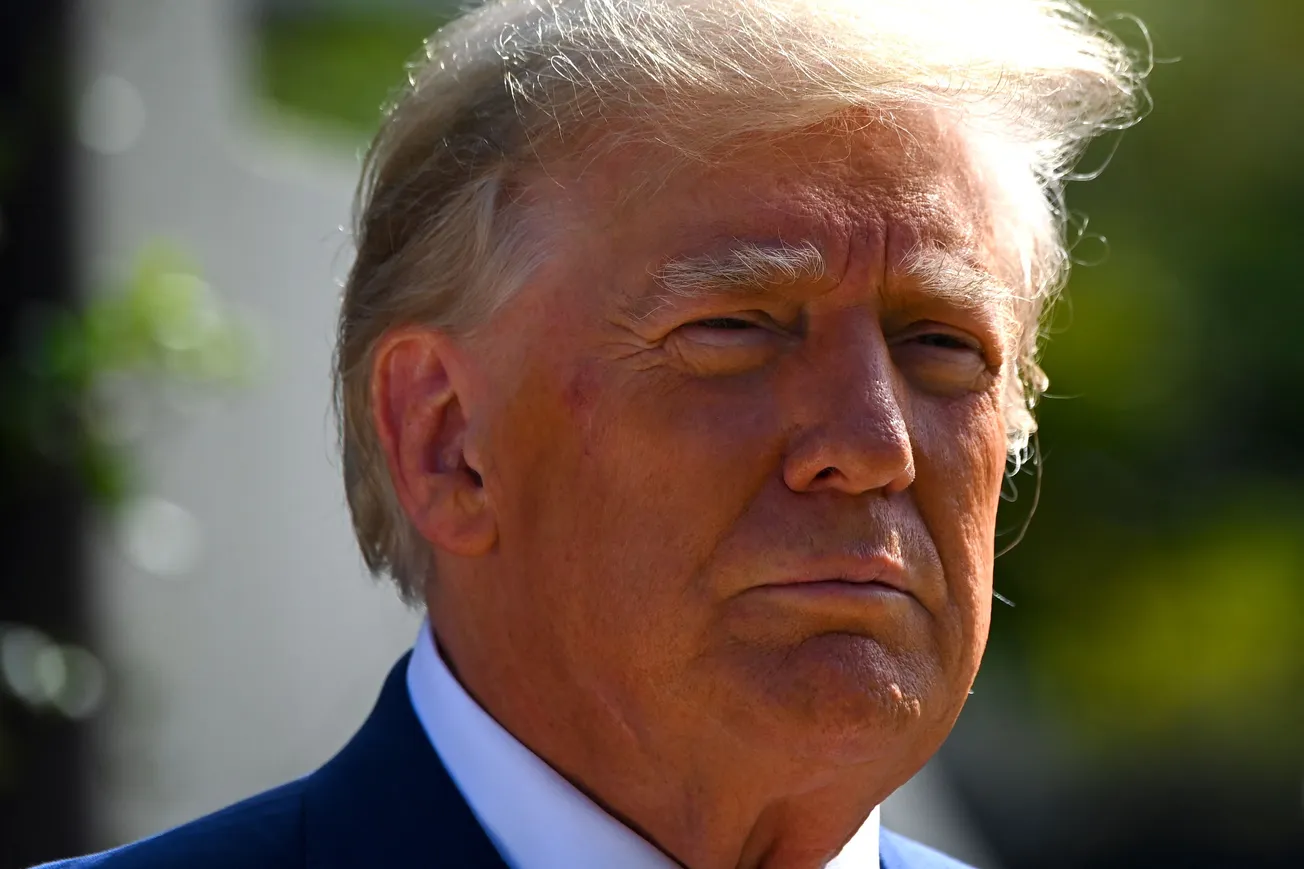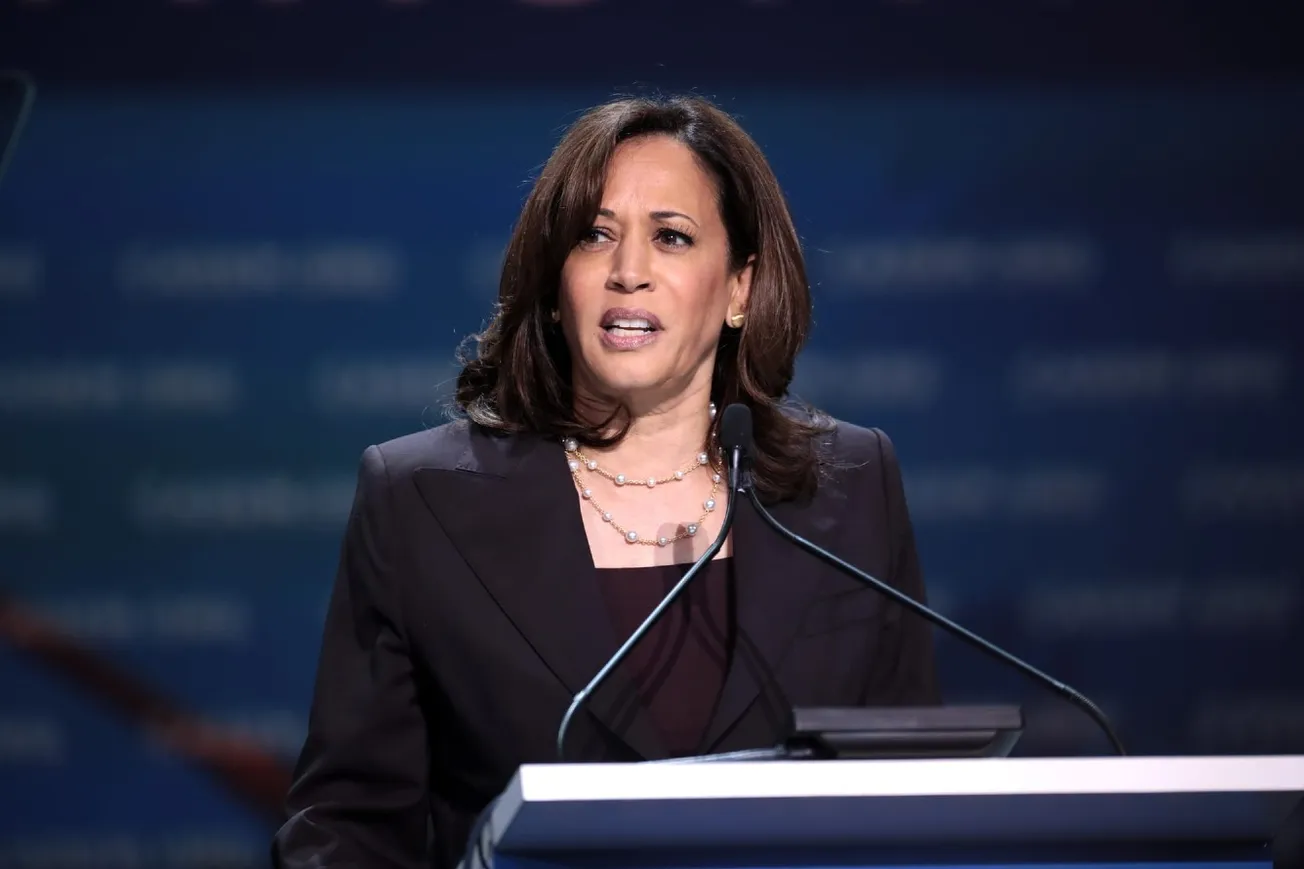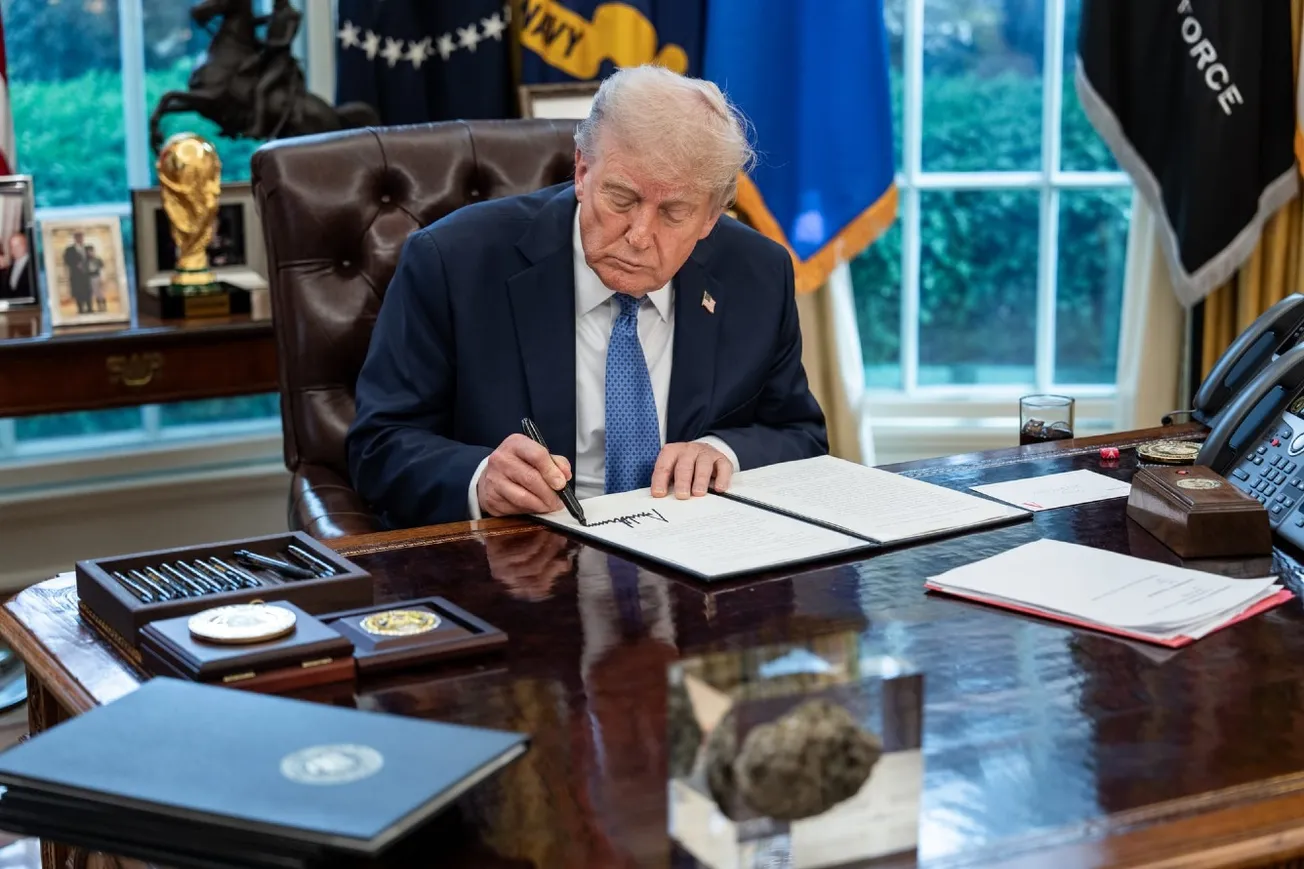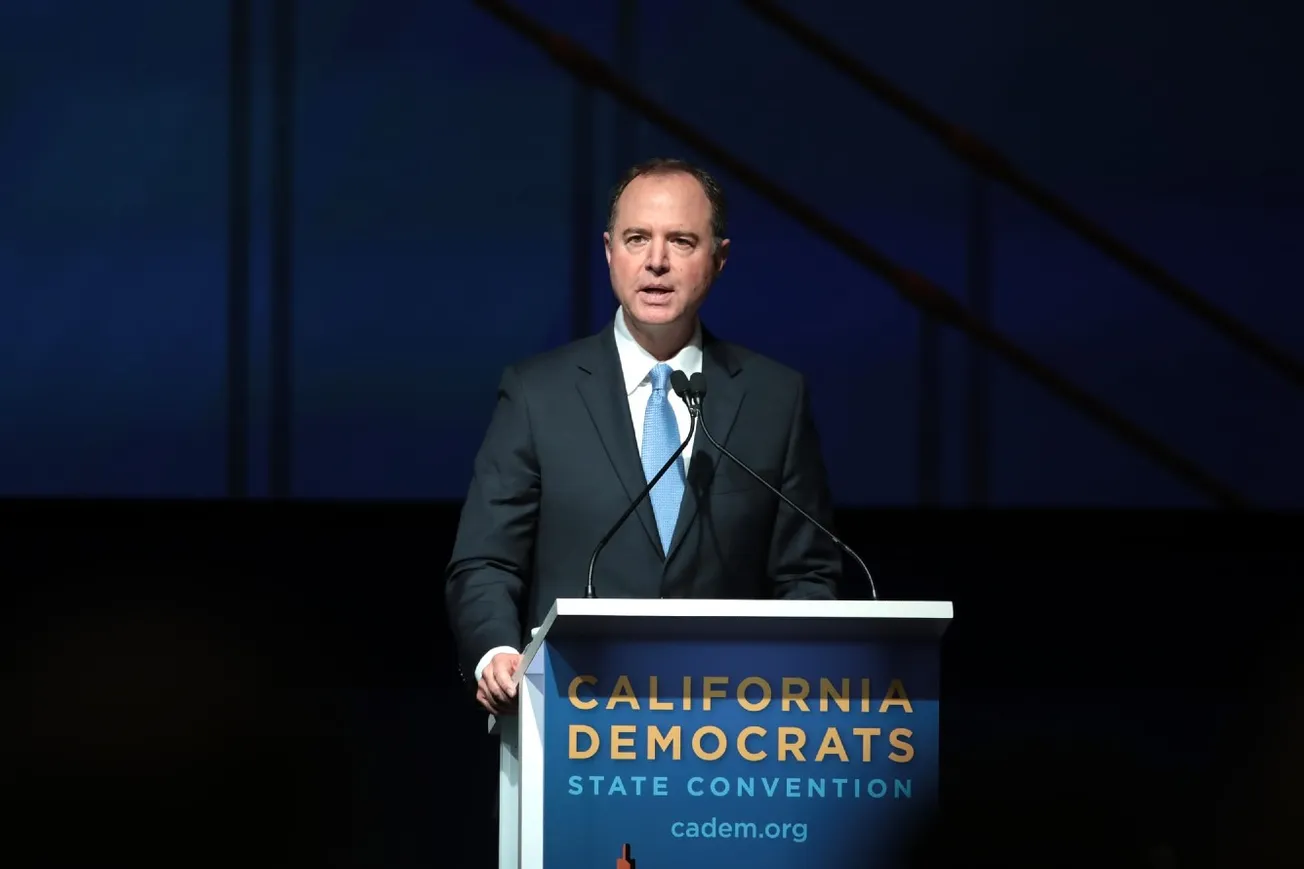It has become increasingly common to hear both the media and Democratic politicians describe so-called MAGA followers of Donald Trump as "extremists." Whether true or not, that label appears to have stuck among a large share of the American electorate and could pose a major challenge for Trump going forward, the latest I&I/TIPP Poll shows.
In early May, we asked Americans the following question: "Do you agree or disagree with describing Trump supporters as MAGA extremists?" The online poll of 1,480 adults across the country was taken from May 3-5. The poll has a margin of error of +/-2.6 percentage points.
The overall results suggest a possible electoral hurdle for the Trump campaign: Among those queried, 50% agreed that Trump supporters could be described as "MAGA extremists." Roughly 39% said they disagreed.
Broken down a bit further, 34% said they "strongly agreed," while 27% said they "strongly disagreed." Another 16% said they agreed "somewhat," versus 12% said they disagreed somewhat.
Not surprisingly, there was an overwhelming response depending on a person's political affiliation. Some 70% of Democrats called MAGA followers "extremist," compared with just 24% of Republicans and 46% of independents.
On the other side, 22% were Democrats, while 62% of Republicans and 40% of independents said the same.
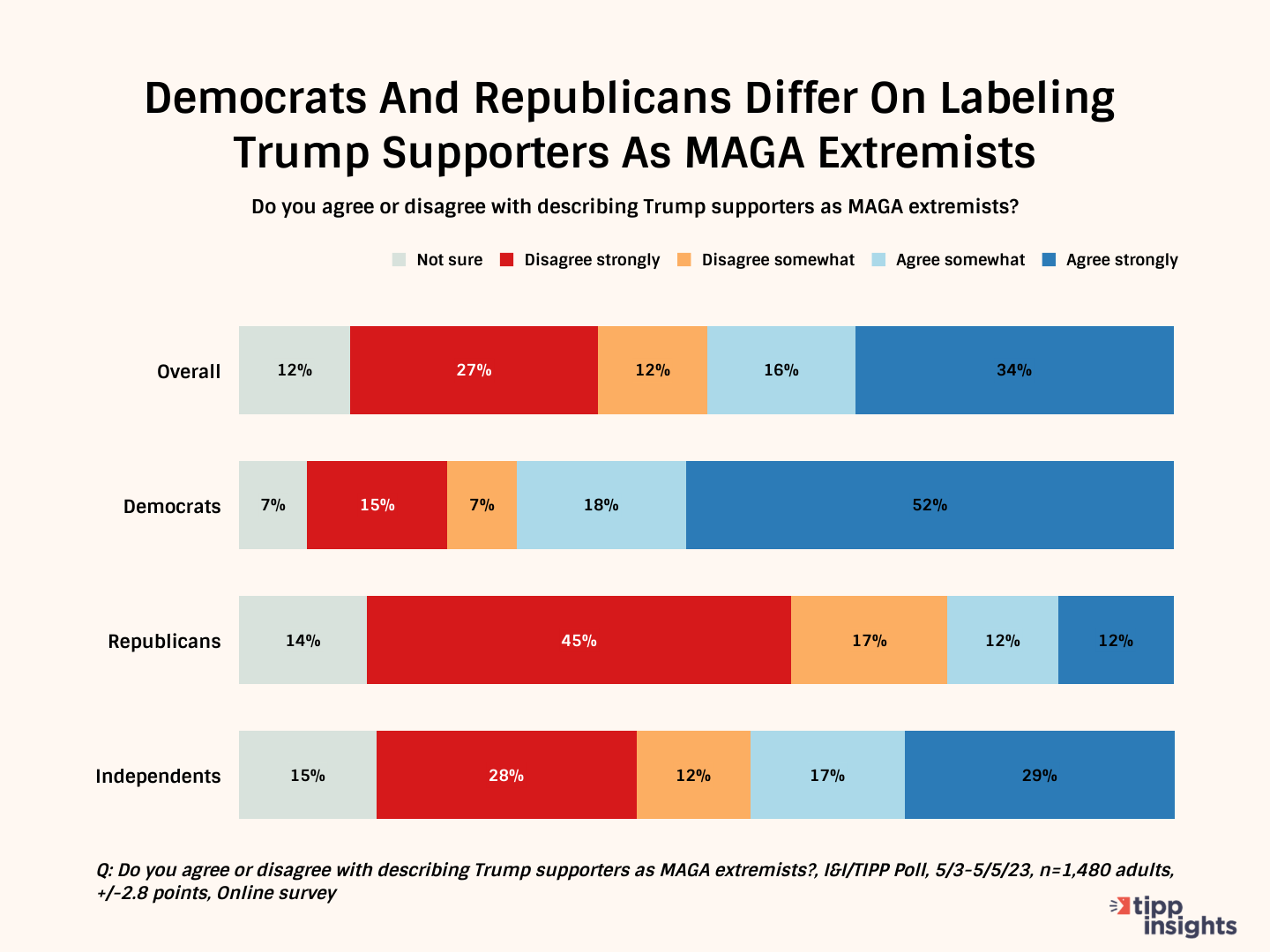
Once again, America's fundamental schism has emerged. However, it is noteworthy that these polling data were taken before Trump's triumphant appearance on CNN, during which he was loudly and repeatedly applauded by an in-studio audience.
The question is, if half of all people believe that Trump's MAGA followers are extremists, where did the idea come from?
The answer is simple: It's become a mainstream media talking point in response to what appears to be a concerted effort to tar Trump supporters as outside the norms of normal, small "d" democratic discourse.
The meme has become fairly pervasive. A quick Google search of "MAGA" and "extremist" yielded 767,000 hits, many of them recent.
"Biden Says 'MAGA Extremists Are Cut From a Different Cloth'," "Biden Announces 2024 Bid, Takes Aim at 'MAGA Extremists'," "Biden warns U.S. democracy imperiled by Trump and Maga extremists," "Embattled Biden Expected to Take a Break from ‘MAGA Extremist’ Attacks in State of the Union," "A bulwark against MAGA extremism," are just a small sampling of the hundreds of headlines over the past six months or so tagging Trump followers as "extremists" or worse.
There's little question that it is a strategy of Democratic Party and White House strategists, who have made no secret of their fear of Trump going head-to-head with the highly unpopular Joe Biden.
Last November, White House adviser Anita Dunn revealed on NBC's "Meet The Press" that portraying Trump followers as extremists "was a very effective strategy for kind of raising for the American people the hazards of going down that path with democracy denial, with the threats of political violence to achieve political ends, with an extremist program that involves denying women the right to an abortion.”
Did such rhetoric, repeated uncritically by left-leaning "mainstream media" outlets, halt the "red wave" election that would have swept Republicans into power in both the Senate and House? And what impact will it have in 2024's presidential election?
On the first question, the answer seems to be "no."
"Republicans in 2022 were caught flat-footed in securing reasonable limits to easy/early mail-in voting and were badly outspent by Democrats who used the rules and their resources for rounding up enough votes in the right places to block the red wave," wrote James E. Campbell at RealClearWire just last week in a lengthy, tightly argued online dissection of what happened last November.
He added, "As George Washington Plunkitt, a late 19th-century leader of the legendary Tammany Hall political machine, might have said about those running the 21st-century version of political machines: 'They seen their opportunities and they took ’em.' "
But as for the second question, regarding 2024, it seems certain that the Democrats will continue with what they see as a successful tactic: Portraying anyone who supports Trump as a beyond-the-pale extremist.
Biden brought the charge front-and-center in a dark, symbolically fraught speech he made last September outside Independence Hall in Philadelphia. In it, he essentially likened MAGA ideology to fascism, a stunning talking point picked up by many in the mainstream media.
Given Biden's extraordinarily weak approval numbers, tainting Trump supporters as wild-eyed fanatics may be his best hope. In a recent ABC News-Washington Post poll, Trump leads Biden by 45% to 38%, a shocking deficit for a sitting president to make up.
Biden appears to believe that, by stigmatizing Trump and his MAGA followers, he can soften Trump's non-MAGA support enough to hold onto his faltering presidency. But even National Public Radio has admonished Biden that he "walks a fine line in (his) attack on MAGA Republicans."
Right now, the I&I/TIPP Poll gives Trump a very hefty 38-point advantage over the No. 2 in the polls, Florida Gov. Ron DeSantis. The RealClearPolitics polling average is about the same: 36 points.
But will it last? Washington Examiner Chief Political Correspondent Byron York recently wrote: "By the end of (this) week, the field will likely include Trump, DeSantis, Nikki Haley, Tim Scott, Chris Christie, Asa Hutchinson, and Vivek Ramaswamy. Later, it could possibly include Mike Pence and others, perhaps Glenn Youngkin and Chris Sununu."
For right now, Trump appears safe, given what York calls the "stature gap" between the former U.S. president and those he's competing with. But a lot can happen in a year and a half. And come election time, Trump may have to fight off Democrat and media claims that his followers are "extremists," or risk losing again to Biden.
I&I/TIPP publishes timely, unique, and informative data each month on topics of public interest. TIPP’s reputation for polling excellence comes from being the most accurate pollster for the past five presidential elections.
Terry Jones is an editor of Issues & Insights. His four decades of journalism experience include serving as national issues editor, economics editor, and editorial page editor for Investor’s Business Daily.
Hey, want to dig deeper? Download data from our store for a small fee!
Like our insights? Show your support by becoming a paid subscriber!

